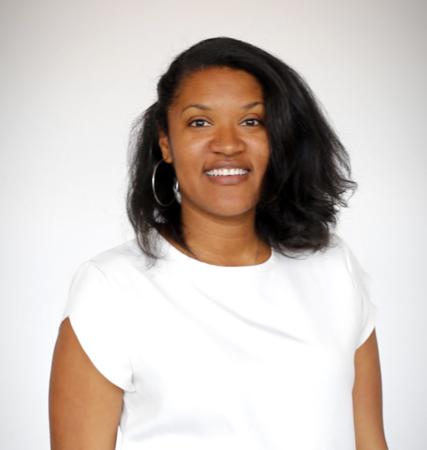When we think of the latest news in the tech scene, we often train our gaze out west, keeping an eye on Silicon Valley for the latest tech innovations and IPO sound bytes.
But in doing so, many of us miss out on the expertise and insights of brilliant minds in the emergent tech scene in the South. Hubs like Jackson, Mississippi, Austin, and of course, Atlanta are serving up a goldmine of tech innovation. So why don’t we know more about them?
We caught up with two Atlanta-based changemakers to learn more about the tech hub in the southern states. Nashlie Sephus and Ivan Walker are longtime friends and tech founders who’ve been paving the way for the Black tech community in recent years. The Georgia Tech grad school grads form a critical part of Amazon’s AWS team while maintaining strong ties with outreach initiatives in the community.
Nashlie and Ivan are co-founders of The Bean Path, a nonprofit organization based in their hometown of Jackson. It creates strong tech foundations in underserved communities by providing one-to-one tech consults in local libraries, holding coding programs and scholarships for students, and more. Its aim is to provide resources and mentorship that have largely been unavailable to those communities, offering a means for young Black tech hopefuls in the South to carve their own path in the industry.
While we’re just beginning to understand the South’s impact on the tech world, the Jackson, Mississippi, natives are giving us an inside look into a world that many in the region have known about for years. And we’re ready to catch up.

“The world has been missing out on what we have to offer, and we need to change that.”
How has growing up in the South informed your experience as a startup founder?
A lot of people were taught that you grow up, you go to school, you get a job and that’s it. But nowadays we all know that’s different. People stay at a job for two or three years and then switch to another company. We have to do things differently; we have to think about things differently than what we were taught.
And so someone does that and says, “The world has been missing out on what we have to offer, and we need to change that.” Then, it’s like, “Who else [will] do it? If not me, then who?” So we stepped up to the plate and did it.
Can you tell us a little bit about your journey to Amazon?
Joining Amazon happened a little bit by accident.
I was the CTO of a startup called Partpic; I was a shareholder there and helped build the company. While I was presenting at an AI conference in Boston, I was approached by someone from Amazon who said he was really impressed and wanted to hear more of how they could leverage some of that technology. I gave him my card and then one thing led to another and [Partpic was] acquired by Amazon in November of 2016. So our entire team joined Amazon and that’s how we got here.
It’s definitely a change, going from CTO of your own startup to working at a multinational company like Amazon. Since joining, what have been some of the highlights?
At Amazon, you have a network of very smart, brilliant people. I love being able to have access to those folks ― whether it be mentors or people on my team ― who I can just go to for advice. I think we have about a hundred PhDs in computer vision and AI, and that’s just my org alone. I always say I never want to be the smartest person in the room because that means I’m not learning.
Another thing I like about Amazon is the autonomy that each team has to do whatever they need to do to be successful. It’s like all these little startups within one big company. Honestly, it’s kind of a blessing and a curse. But you have a lot of autonomy, so you can pretty much think big and get it done.
So you are currently the CEO of The Bean Path. Can you speak to your motivation behind getting your nonprofit started?
I had a light bulb moment when I was talking to one of my colleagues. He casually mentioned that he owned a couple of shopping malls in India, and I was just like, “What? You’re a product manager at Amazon.” And I had been thinking we’d made it, right? But that’s not the ending point. That shouldn’t be where it stops.
So I was like, “Well, why can’t we do that?” We had always been talking about doing a startup ― a nonprofit back at home. So that’s when I realized [it was] time to do it.
Because we are in the South, I would say we have a different vantage point. We’ve often felt like we were being left behind. And because we’ve been left out, that’s an entire population of people [and] innovation that has not even been cracked open yet.
Our goal is to create a tech hub that is live, work, play, and where people can have all sorts of events. So we asked, “How do we enable an entire region of the community of people in the South to partake in this tech world that is thriving all around us?”
By encouraging people and giving them the tools and access to what technology is out there, it can help them in their everyday lives. Then they can start thinking about solutions with technology and solving problems with it, which opens up an entirely new realm of innovation.
Looking ahead, what is the impact that you hope your experience and business will leave on your community?
I don’t have any children of my own; because of that, I want to make sure I’m still able to provide generational wealth for my community. I’m driven by the need to empower people, and it all kind of stems from the innate, insatiable desire to see everyone be their best selves. Because when they are their best selves, they’re pushing me to be my best self and come up with better solutions.

“William Faulkner said: ‘To understand the world, you must first understand a place like Mississippi.’”
Can you tell us a little bit about how you found yourself at Amazon? And what has that experience been like?
I was recruited to Partpic by Nashlie. She had recently completed her Ph.D. studies and had taken on the role of CTO there and [she] was looking to hire some engineers to help her build out the app. I was still at Georgia Tech at the time working on my Ph.D. — or, my Ph.D. was working on me — and I started consulting with the startup and got some initiatives out the door. I’m glad I did.
At Amazon, I’m doing new infrastructure, and they’re (AWS) changing the way we implement solutions with cloud computing. Since coming to Amazon, I leverage my experience and systematically go about solving new problems or even old problems in new ways.
The culture at Amazon is a real benefit. I like working with some brilliant developers. And while I did a lot of great work on my previous team, you know, I definitely feel like I’ve got a lot of learning and catching up to do [on my current team, AWS Activate].
Can you speak to your experience being a tech professional in the South? What are some of the misconceptions people have about Southern tech professionals?
I think it’s important to kind of frame [the experience] a little bit. We both went to Georgia Tech, and while it was one of the top five engineering schools in the nation, it was widely accepted that you probably weren’t going to be working in that area. There was this paradigm there that you have this large, great engineering school, but the companies, for some reason, weren’t there.
Atlanta, specifically, has been the hub of a lot of great talent, including the HBCUs. The South has its stereotypes and harsh past, but it’s really no different than a lot of other places. You have some of the same challenges, but you also have a very strong base of Black people who are brilliant. We’ve already proven that we can do it all ― we just need a chance. And so when we didn’t get that chance, we said, “Okay, we’re just gonna do it ourselves.” So that’s where you see these startup companies.
What would you say the advantages are to having that Southern perspective?
You know, William Faulkner said, “To understand the world, you must first understand a place like Mississippi.”
And I feel like we inherently have the better vantage point because we’re used to looking at the rest of the world, but the rest of the world isn’t used to seeing what we see. We already understand you and think about your perspective. And so this kind of goes to the school of thought of diversity. Who’s going to tell those stories? Who better to speak to these organizations than someone who’s lived it? It’s equally important for us to be here contributing and amplifying voices while speaking our own voice.
Looking ahead, what is the impact that you hope your experience and business will leave on your community?
I think my community is everyone I come in touch with. I see us all tied together in society, and the issues we’re addressing today are so important because when you oppress any group of people, you’re inherently affecting the whole of society. Over time, we have inherently denied access to people, making it a credentials issue or whatever ― especially in the South. A young Black male or a young Black female going into engineering, even still, people are uncertain of what that means.
So I kind of see all of the work we’re doing as removing barriers.
It’s uplifting people and communities and giving them access that they previously didn’t have. It’s giving them confidence that they didn’t even know they were lacking. I like to believe that [upcoming tech professionals] are gonna be better engineers than I am and accomplish more than I have because they’ll have my knowledge and my experience to learn from. I think that’s ultimately what we’re trying to do here.
Amazon is passionate about creating change in communities across the United States and providing opportunities for people looking to break into the tech game at every level. Check out the opportunities that Amazon has open, and become a part of carving your own path in the industry.
This editorial is brought to you in partnership with Amazon.


